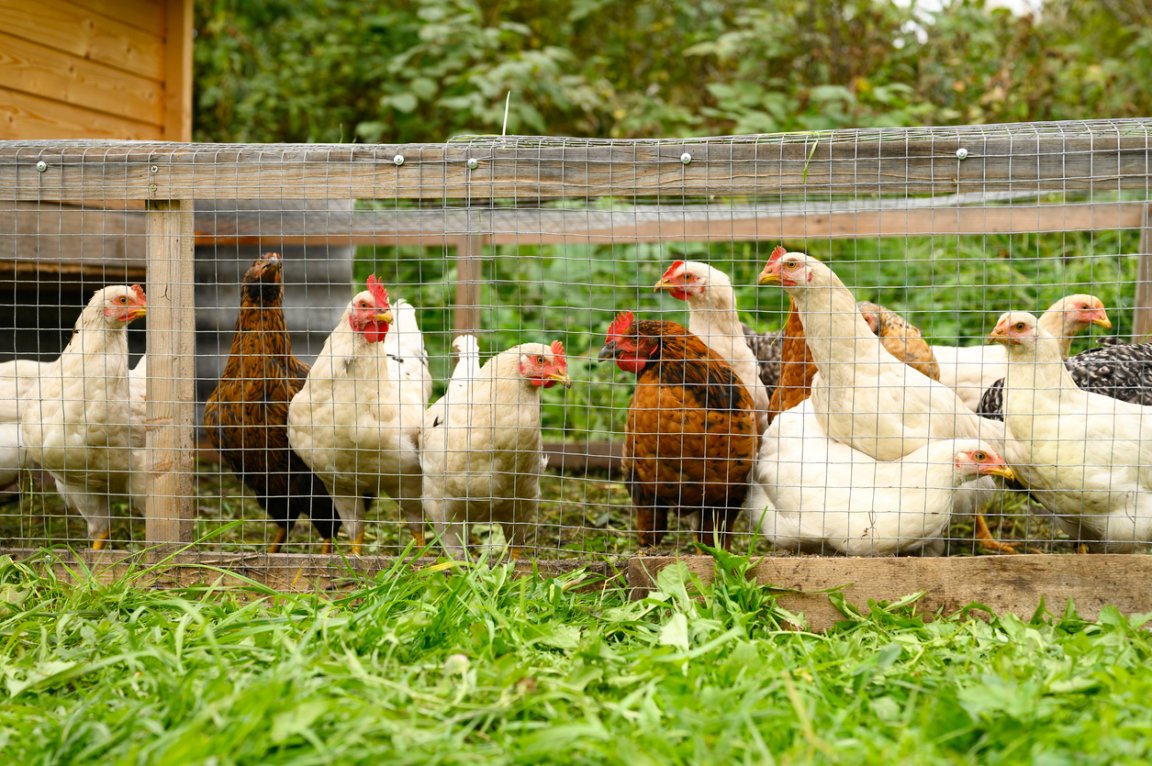We may earn revenue from the products available on this page and participate in affiliate programs. Learn More ›
The cost of eggs incentivized many homeowners to consider raising backyard chickens, with numbers rising from 8 percent to 13 percent in 2022, but there are many other benefits of keeping these social, affectionate birds.
If you’re considering bringing egg production in-house, our guide to raising chickens is a great place to get some basic information and ideas of what to expect. Among the things you need to raise backyard chickens is space. It takes 3 square feet in the coop and 10 square feet in the run for each chicken. Here’s a list of some additional items you’ll need.
1. Sentinel Chicken Coop
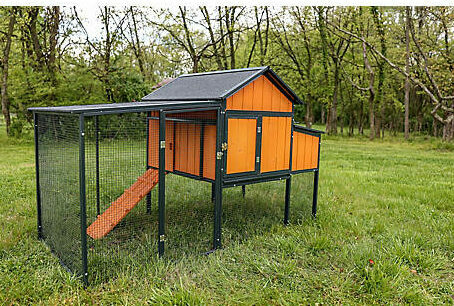
Chickens need a safe place to sleep to get out of the weather, and to lay their eggs in. A chicken coop can be a converted doghouse or shed, a purpose-built building, or a chicken tractor. The Sentinel Chicken Coop from Tractor Supply is our best overall pick for best chicken coops.
This easy-to-assemble raised coop holds up to six chickens. It’s built to last, with a powder-coated steel frame and reinforced thick wood panels. Latches on the sliding door ensure safety from predators, while additional access doors and a roof opening enable easy cleaning.
Get the Sentinel Chicken Coop at Tractor Supply Company for $399.99
2. Little Giant Single Plastic Nesting Box
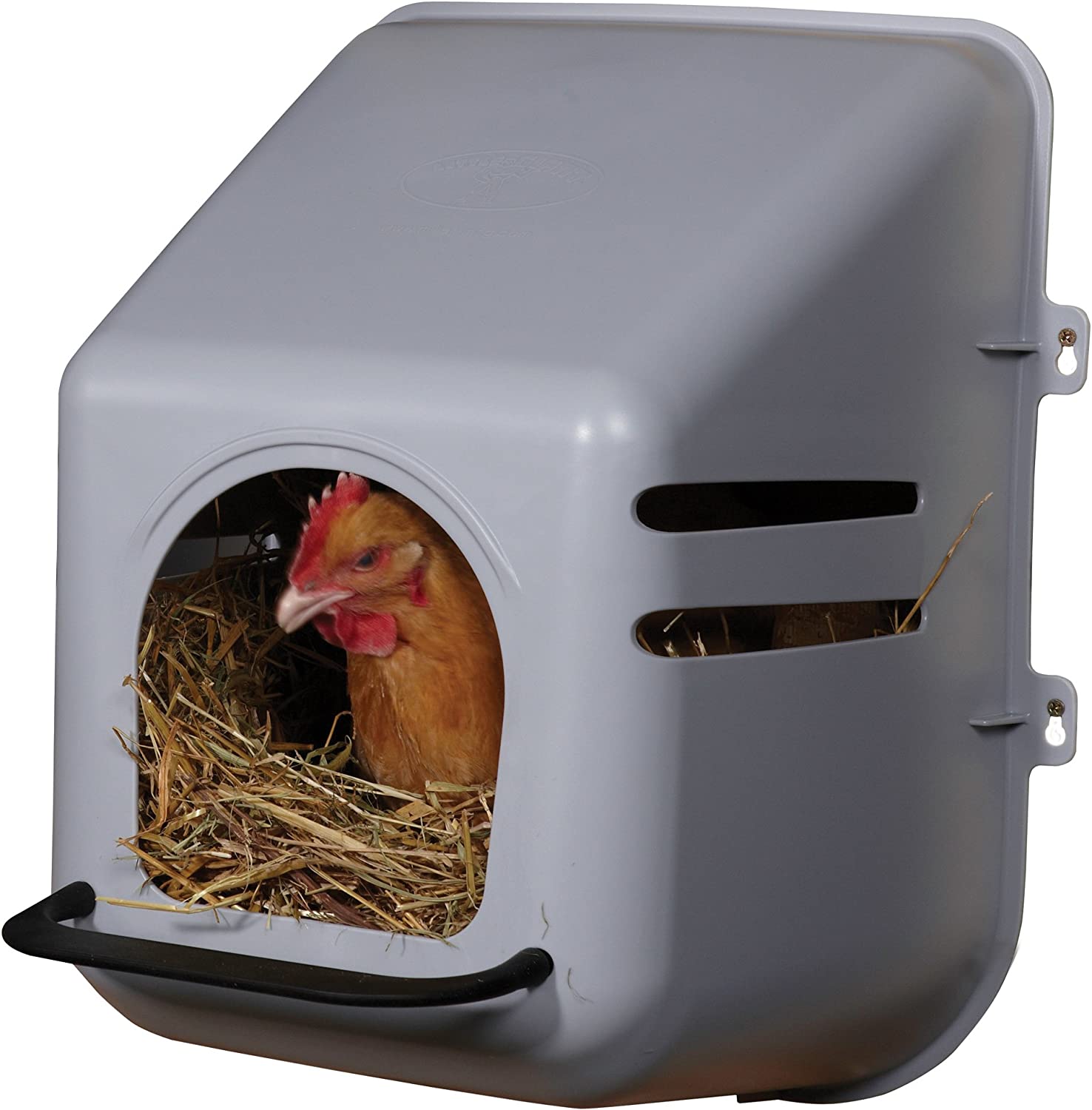
Chickens like to have a place to lay their eggs. Because the wall-mounted Little Giant single nesting box is made of high-density, impact-resistant polyethylene, it won’t rust, rot, or corrode. It will also stay warmer than metal nesting boxes, and is easier to clean than wooden nesting boxes—a key factor in its high ratings. A low floor keeps bedding and eggs secure inside, while its included perch and ventilation holes allow for fresh air and easy entry. Reviewers appreciate its affordability and sturdiness, as well as the fact that it’s easy to install.
Get the Little Giant Single Plastic Nesting Box with Perch at Amazon for $27.99
3. Premium Pine Shavings
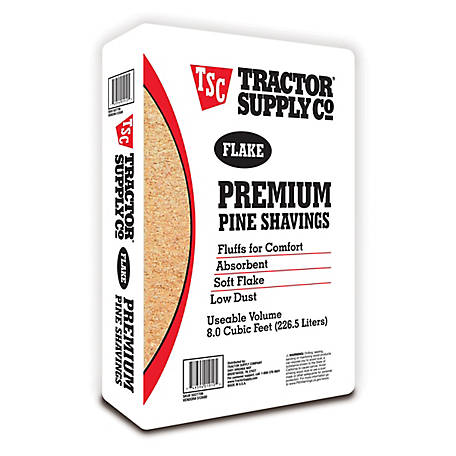
Bedding material provides chickens a soft and comfortable place to sleep. But what is the best bedding for chicken coops? Pine shavings are a good choice since they’re inexpensive, absorbent, control odors, and have natural anti-bacterial properties to keep the coop clean, disease-free, and compostable. They provide more insulation than straw, but can cause plastic nesting boxes to degrade. Premium Pine Shavings from TSC are our top recommendation for large flakes, since they have a pleasant aroma and low dust. They’re also absorbent, soft, and fluff up nicely.
Get Premium Pine Shavings at Tractor Supply Co. for $5.59
4. Harris Farms Galvanized Steel Double Wall Poultry Drinker
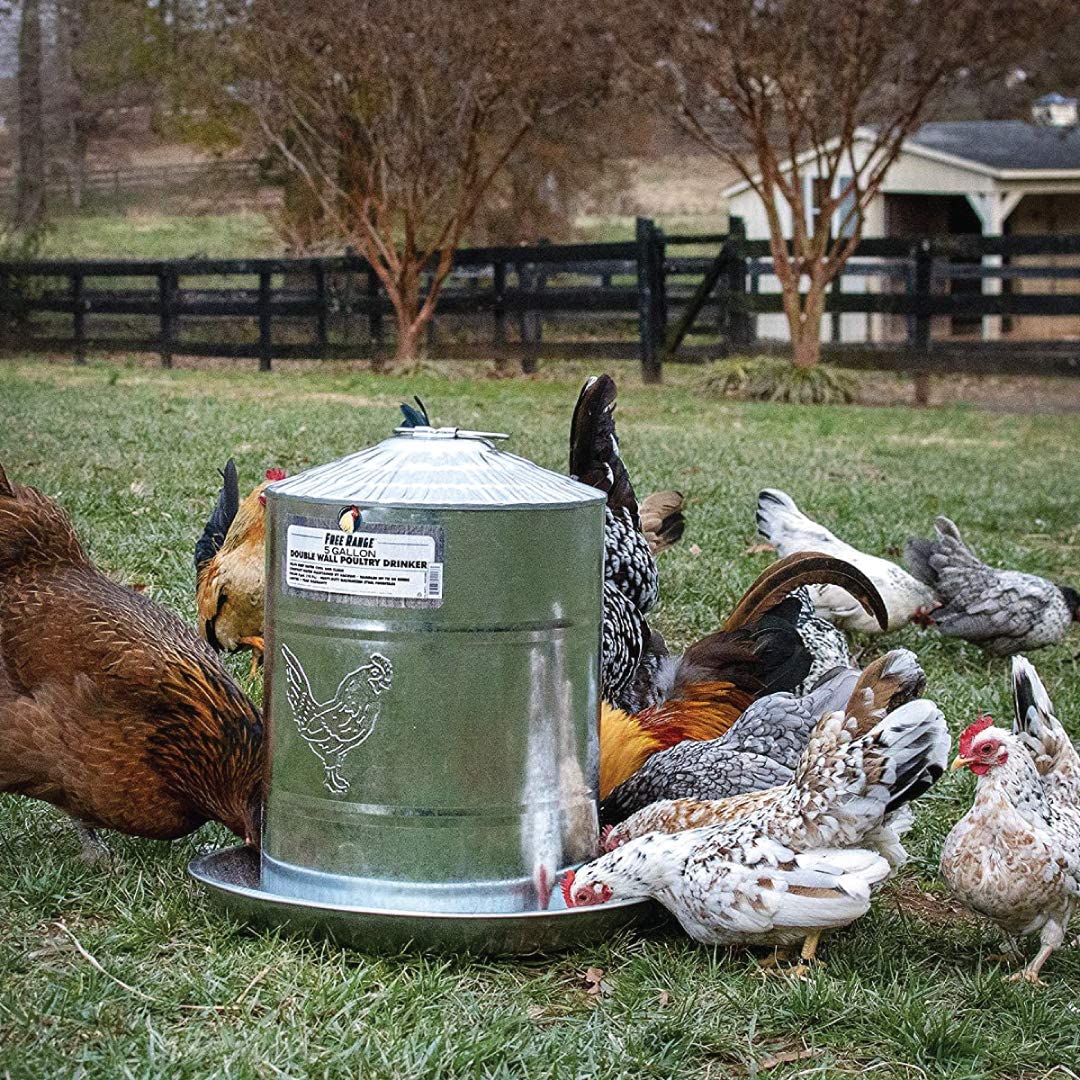
There are several considerations beyond capacity when shopping for a chicken waterer. It’s important to decide whether you’d rather plastic or metal; gravity-fed, hanging, or nipples. The Harris Farms galvanized steel double wall poultry drinker is our top pick for best overall waterer, due to the choice of sizes (two gallons or five gallons), the double-wall vacuum design that enables a constant supply of clean water, and the fact that it can be used with a heater in the winter. You’ll need a separate plastic waterer if you like to add apple cider vinegar, though.
Get the Harris Farms Galvanized Steel Double Wall Poultry Drinker from Amazon for $42.99
5. Harris Farms Galvanized Hanging Poultry Feeder
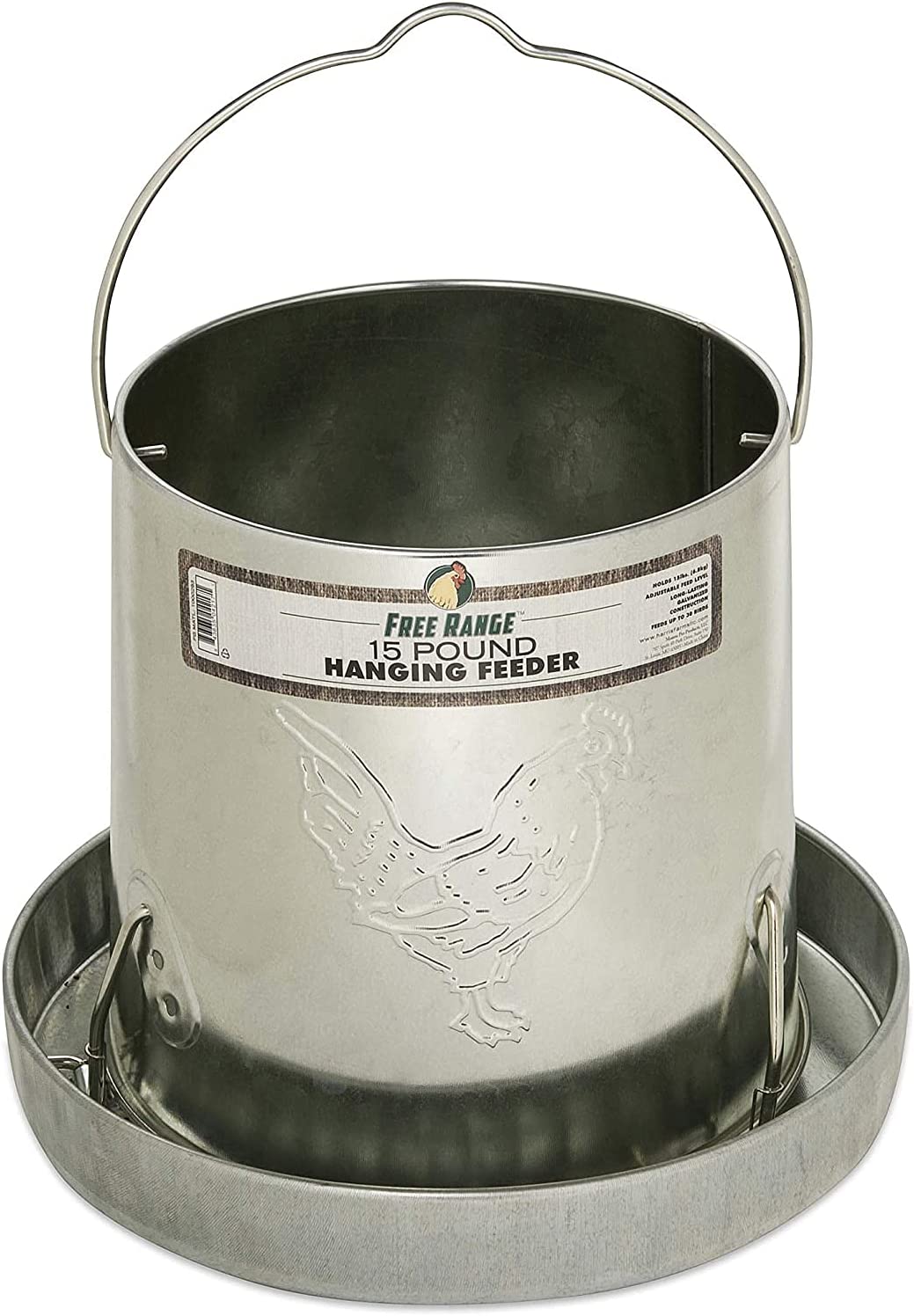
Widely considered the best hanging chicken feeder, the Harris Farms galvanized hanging poultry feeder holds 15 pounds of feed, which is enough for 15 to 30 birds. Three settings let you adjust how quickly the feed is dispensed, and the heavy-duty feeder is easy to refill because it doesn’t have a lid—so it should be used inside. Rolled edges make it safe, and the design minimizes waste. Reviewers praise this feeder’s durability, although some would prefer it had a lid.
Get the Harris Farms Galvanized Hanging Poultry Feeder from Amazon for $18.99
6. Purina Layena Nutritionally Complete Layer Hen Feed Crumbles
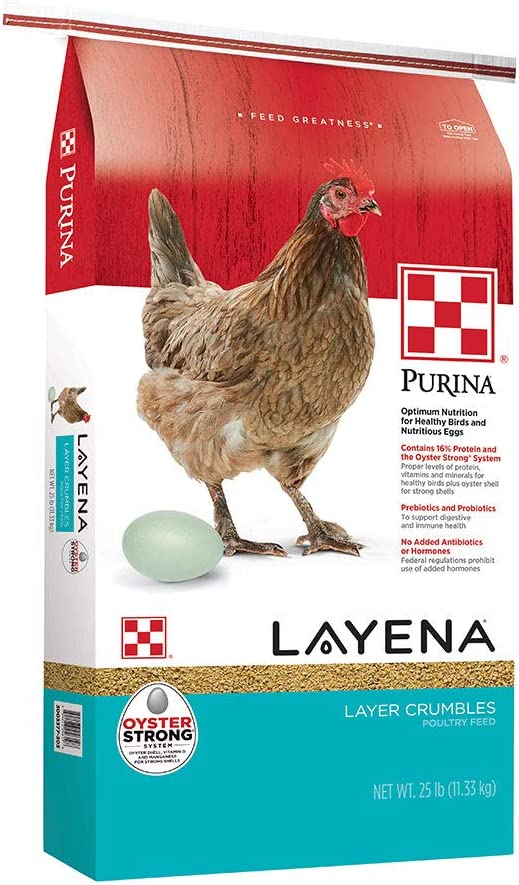
Chickens need a balanced diet—and laying hens need some additional nutrition. You can choose from pellet feed or crumbles. Purina Layena is a well-rounded crumble that provides key levels of vitamins for good health. It has essential amino acids to help them produce eggs and promote feathering, calcium and trace minerals for strong shells, and a mixture of prebiotics, probiotics, and yeast for immune and digestive health. Reviewers report that their chickens love this feed.
Get Purina Layena Nutritionally Complete Layer Hen Feed Crumbles from Amazon for $36.49
7. Manna Pro Oyster Shell
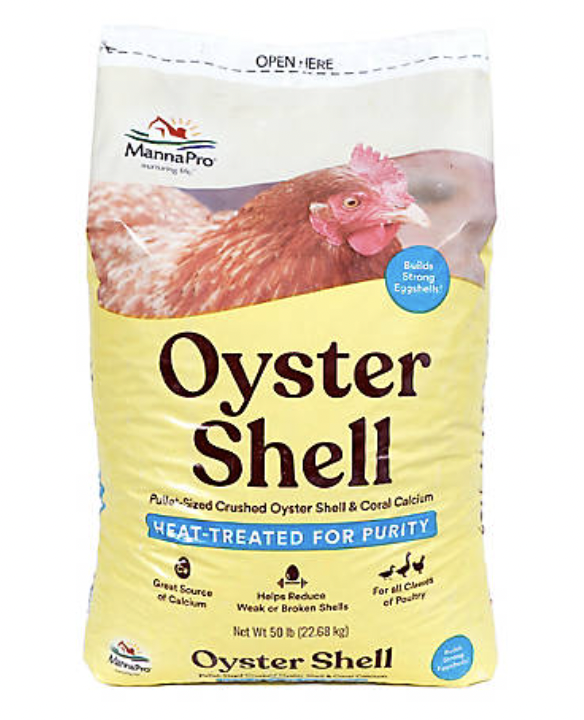
Layer hens benefit from additional calcium to help produce strong eggshells. Oyster shell is soluble grit that dissolves when the chickens consume it, it’s also used to build shells and strong bones. Manna Pro Oyster Shell provides a good source via a pellet-sized crushed oyster shell and coral calcium. Most chicken keepers put it out in a separate container for free choice feeding, but it can be mixed with the feed if preferred. And since it’s non-perishable, the oyster shell lasts a long time.
Get Manna Pro Oyster Shell from Tractor Supply for $15.99
8. Poultry grit
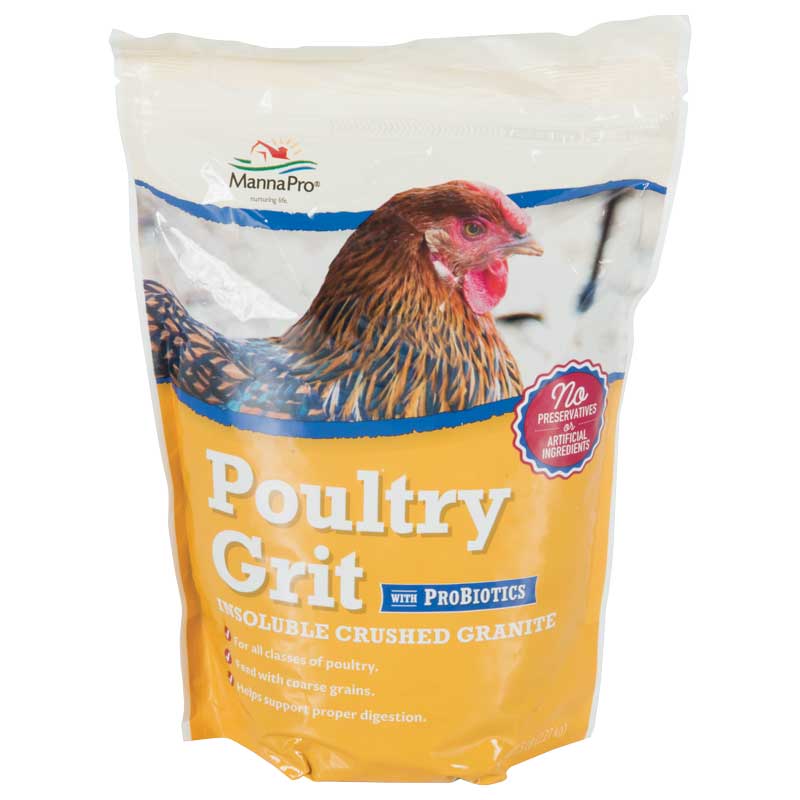
Insoluble grit—often crushed granite—is necessary to help chickens digest their food. Instead of a stomach, chickens have gizzards, a muscle that grinds up coarse grains for digestion. However, it needs the assistance of little stones to help break up the food. Free-range chickens may not need it, but pastured hens will benefit from it. Poultry Grit is crushed granite that is sized appropriately for chickens, and it can be fed in a separate container or scattered as scratch.
Get Poultry Grit from Premier 1 for $8.00
9. Flock Party Mealworms
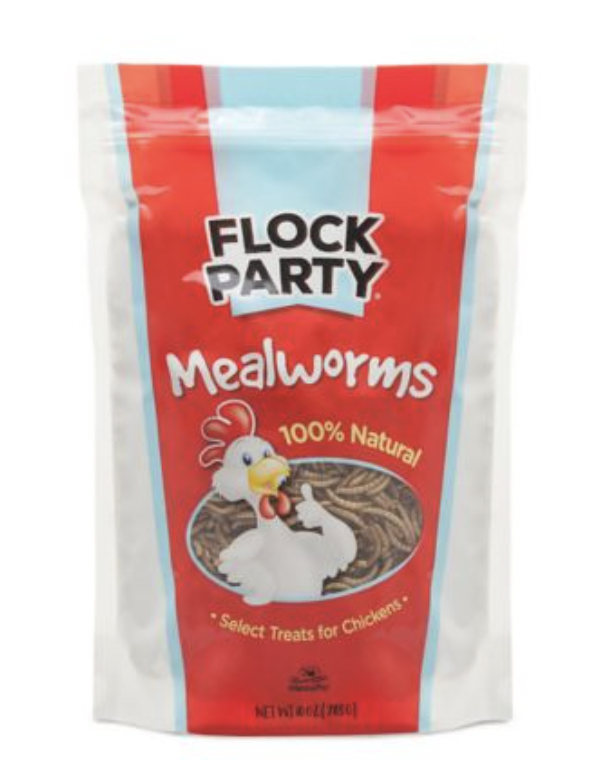
Part of how to raise chickens includes providing them a happy life, and chickens enjoy a treat now and then just like everyone else. Flock Party mealworms provide a good source of both protein and fat, particularly for pastured hens with limited access to insects. Dried mealworms are easy to store, although they are perishable and should be stored in a cool, dry space safe from rodents. And since chickens go crazy for mealworms, why not make them happy with an occasional treat?
Get Flock Party mealworms from Tractor Supply Co. for $11.99
10. GoodEarth Diatomaceous Earth Supplement for Chicken and Farm Animals
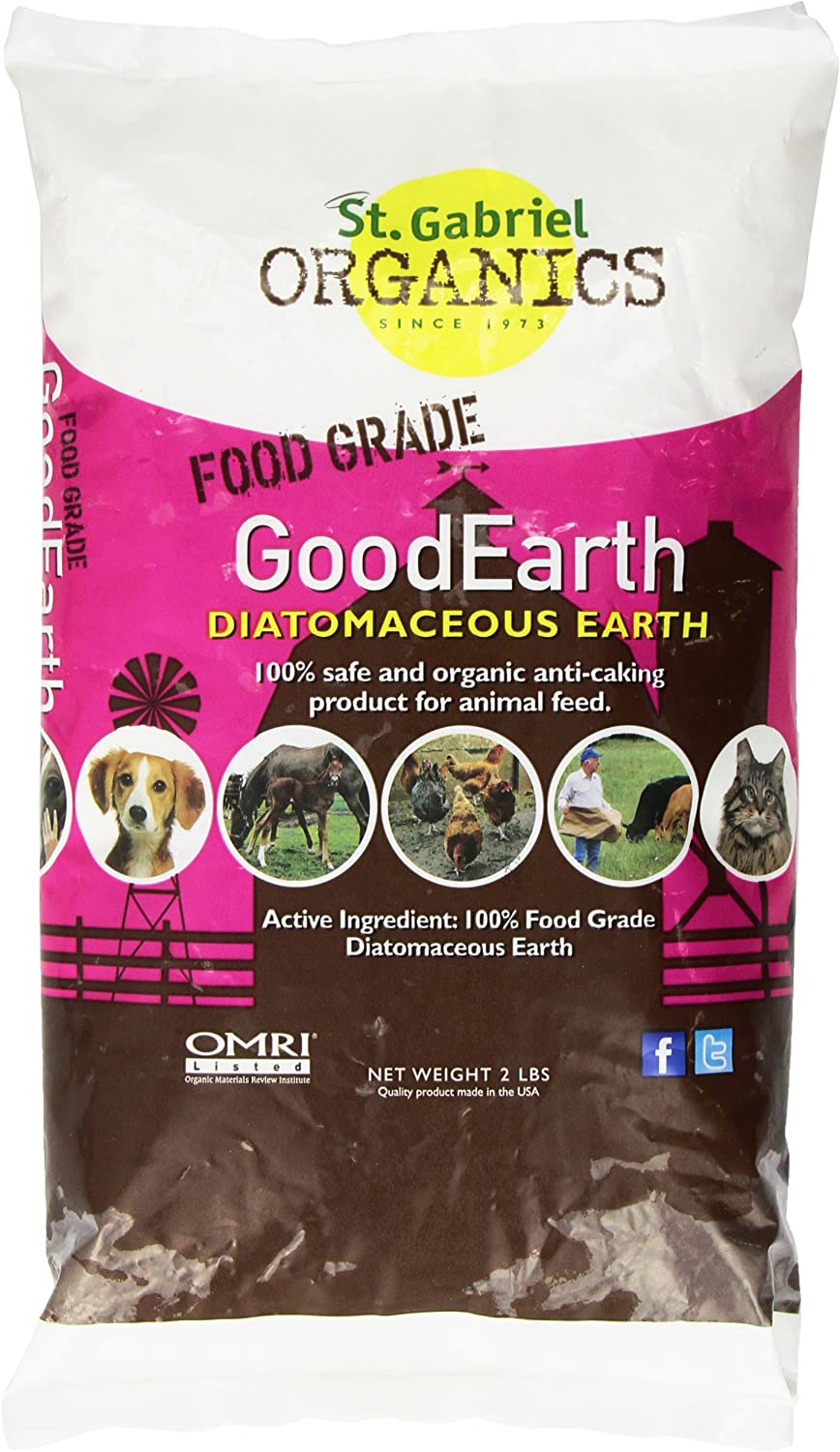
Over the course of a chicken’s life, a variety of medications and wormers may be needed from time to time. Diatomaceous earth is a natural dewormer that can rid a chicken of intestinal parasites. Safe and nutritious for all animals, food-grade GoodEarth Diatomaceous Earth Supplement for Chicken and Farm Animals contains many beneficial minerals, such as iron, calcium, zinc, copper, potassium, and sodium. The key mineral silica eradicates intestinal parasites. Mix it with their feed or let them dust bathe in it.
Get GoodEarth Diatomaceous Earth Supplement for Chicken and Farm Animals from Amazon for $19.99
11. Manna Pro Ultimate Chicken Scratch
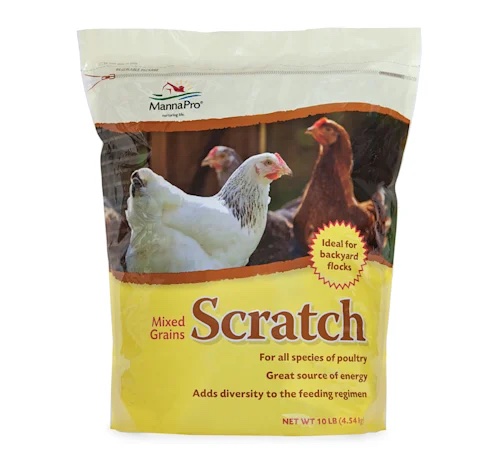
Scratch is not a substitute for a balanced poultry feed. Rather, it’s a nutritious treat. Typically consisting of items like cracked corn, oats, wheat, milo, millet, barley, and sometimes sunflower seeds, scratch is a fun snack you can toss on the ground to encourage your chickens to scratch through the dirt. Manna Pro Ultimate Chicken Scratch adds diversity to your feeding program with extra calories for more energy and a little added fun.
Get Manna Pro Ultimate Chicken Scratch from Petco for $14.99
The prices listed here are accurate as of publication on February 3, 2023.

